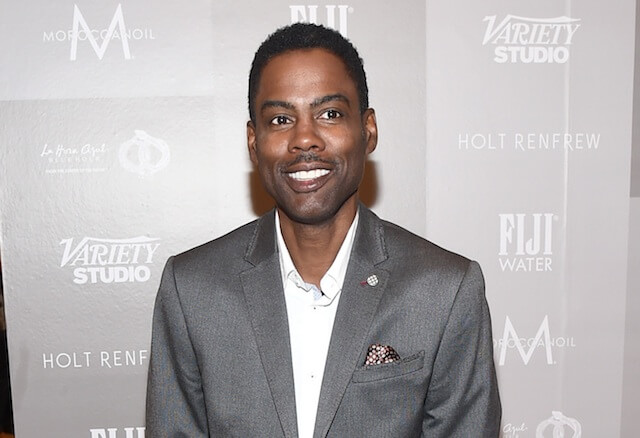Chris Rock doesn’t talk Ferguson or race or about politics at all at the press conference for his latest film, “Top Five.” The focus instead is on the movie, which he wrote and directed, and which stars him as a Rock-esque movie star getting close with a sharp-witted journo (Rosario Dawson). Like a lot of standup comics, Rock hasn’t had a ton of luck with movies, and even the ones he’s directed himself (“Head of State,” “I Think I Love My Wife”) haven’t fully utilized his considerable gifts. Yet “Top Five” shows a real leap-forward, and has been getting the kinds of notices that are usually reserved for his stand-up specials. Here are the things he told the press, some of whom — because it dips its toes in the world of journalism — are seen in the movie. He didn’t treat “Top Five” different from his comedy: “I made this movie just like my stand-up. I used to have a movie process and a standup process, and I’d say, “These are the jokes for the movie,” then I’d have a whole other file for standup. Not this one. I worked-shopped it, just like my stand-up. The goal was to get a movie that felt like my stand-up, that went all over the place and started here and went there, that would be about relationships and have a political component to it.” The editing jumps around through time and sometimes within a scene: “That’s one of the big differences between this movie and other movies I’ve done: I treated the editing like it was writing. It was like, ‘Let’s make music, let’s do something different.’” His own fear of trying something different: “You can’t make anything really good unless you know how much it can suck. I was aware of how much it can suck. The worst movies tend to have the best people in them, because they aggressively suck. There’s lazy movies, where you just do safe stuff through the whole thing and it kind of sucks. But it’s lazy; you’ve seen it before. Then there’s ‘Howard the Duck,’ where they’re just trying stuff, just trying. I knew I was going to try, but luckily we didn’t suck.” The movie’s love of rap: “I would say this is a movie with a bunch of characters who grew up on rap and we don’t question it. We don’t even call it hip-hop; it’s just music. We treat it like any other music. In most movies they treat rap music or hip-hop music like it’s this new thing. Like, only old people call it ‘the Internet’ or ‘social media.’ Young people think it’s just whatever it is. They don’t think about it.” Drama is easy, comedy really, truly is hard: “I forget who said this to me: I’m not the director, I’m the protector. I write the script and it’s my job and Scott’s job to protect this idea I came up with. And you’ve got to protect it because there’s nothing worse than a bad comedy. Drama, you actually get credit for completion. I like ‘Gone Girl’; you can make nine different version of ‘Gone Girl’ that work. But when you’re doing a comedy there’s kind of one version that works. You miss anything to the left or to the right, you’re off two seconds, one second, a syllable, and you’ve got nothing. So it’s my job to make sure all this stuff works.” What his cast think of him
“Top Five” makes room for scores of other talent, from fellow comics to legends like Ben Vereen to actors like Rosario Dawson and Gabrielle Union. Here’s what they said about their director and his experimental, collaborative methods: Gabrielle Union: “He gave us his script; he gave us his baby. But he wasn’t like, ‘My baby is perfect, my baby’s testing off the charts.’ He doesn’t assume he has created the next ‘Schindler’s List.’ He’s saying, ‘I want to get there, please give me real feedback. I didn’t assemble a bunch of people to just kiss my ass and tell me it’s amazing. Let’s work together and please give me note so we can create magic.’” Sherri Shepherd: “He did what was in the script, then you kept going, and kept going. You thought, ‘Is he going to say cut at any point?’ He let you go and go and go, and that’s when you found that magic.” Rosario Dawson: “We’d be doing something really, really serious, and he’d say, ‘We need a joke right about here.’ He wouldn’t say at the beginning or end of a scene. He was like, ‘Right here we need something to lighten it up.’ That why I keep calling him a conductor. It was like music —he knew right when it needed to have something.” Follow Matt Prigge on Twitter @mattprigge
Chris Rock on ‘Top Five’: ‘I made this movie just like my stand-up.’

Getty Images


















